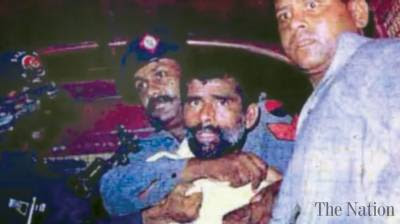ISIS is opening a new front in Pakistan?
ISIS is opening a new front in Pakistan?
By Rifatullah Orakzai
In recent months, the extremist organization ISIS Khorasan has claimed responsibility for some incidents in Pakistan under the name of 'Wilayah Pakistan', which is raising new questions. ISIS has never used the name Wilayah Pakistan before, but has often used the name ISIS Khorasan for attacks here. But now, using the name Wilayah Pakistan suggests that the extremist organization has set up a separate organization for Pakistan, but has not yet been formally announced by ISIS Khurasan.
The new group has claimed responsibility for a total of 38 attacks in Pakistan from May 2019 to the end of 2020. This includes the murder of 11 Shia Hazara workers in Balochistan in January this year after they were abducted.
Intense clashes between the Islamic State of Khurasan (ISIS) and the Afghan Taliban, a militant group active in Afghanistan, have continued for years, with hundreds of fighters killed on both sides. But in recent days, the killing of some key Afghan Taliban commanders by Islamic State in Pakistan has given the impression that ISIS fighters are avenging their defeat at the hands of the Afghan Taliban in Afghanistan by opening a front against them across the border in Pakistan. However, to understand this important development, we need to analyze some of the events recently took place.
A few days ago, Mullah Naik Mohammad Rahbar, a key Afghan Taliban commander in Peshawar, was shot dead by unknown gunmen. Three other people were injured in the attack. The Islamic State (Pakistan branch) claimed responsibility for the attack in a statement. Commander Mullah Naik Mohammad Rahbar belonged to the Khogyani district of the famous Tora Bora mountain range in the Afghan province of Nangarhar, which borders Pakistan. The area has been a stronghold of ISIS in Nangarhar. When ISIS emerged in the Pak-Afghan region in 2015, some districts of Nangarhar soon came under its control and then the whole province became a stronghold of ISIS in the region.
ISIS inflicted heavy losses on the Afghan Taliban in these areas and bloody clashes between the two organizations continued for some time. But in the end, the Afghan Taliban managed to wipe out ISIS from here. Among the Afghan Taliban commanders who played a key role in rooting out ISIS from Nangarhar was the top commander, Naik Mohammad Rahbar, who inflicted a crushing defeat on ISIS in Tora Bora, the last stronghold of the ISIS in Nangarhar, and the adjoining Khogyani District.
The ISIS had earlier carried out a suicide attack on Commander Naik Mohammad, but he survived. In recent months, another key Afghan Taliban commander was killed in Peshawar in February when gunmen attacked Maulvi Abdul Hadi. Targeted Maulvi Abdul Hadi was the Taliban governor of Laghman province. Although no group has claimed responsibility for the killings, Taliban sources claim that Islamic State was involved in the killing of Maulvi Abdul Hadi.
Another Taliban commander, Abdul Samad alias Mullah Tor, was killed in an attack near Peshawar in January this year. No group has claimed responsibility for the killings, but some sources say they are the result of a family feud.
The biggest incident of ISIS and Taliban infighting occurred in Peshawar in October last year when anti-Islamic State militants clashed. An alleged suicide bomber struck the madrassa of Maulvi Rahim Haqqani, an alleged Afghan cleric. The attack killed eight students and injured dozens, but the real target was the madrassa's superintendent and Afghan cleric Maulvi Rahim Haqqani, who survived. He is said to have not only been close to the Afghan Taliban, but also often delivered anti-ISIS speeches. No group has claimed responsibility for the attack, but security officials in Pakistan believe 100 percent Islamic State was involved in the attack.
In addition, Afghan Taliban commanders have been targeted in Pakistan's Balochistan province in recent years. Attacks have intensified. About a year and a half ago, the brother of Mullah Hebatllah, the central leader of the Afghan Taliban, and Akhunzada's younger brother, Mullah Ahmad Akhunzada, were killed in an alleged suicide attack on a madrassa in the Kuchlak area of Balochistan. No group has claimed responsibility for the attack. But Afghan Taliban sources claim that Islamic State was also involved in the incident. Similarly, in January last year, ISIS claimed responsibility for a suicide attack on an Afghan Taliban mosque in Quetta in which a senior police official was killed.
Analysis of the incidents suggests that the Islamic State of Khurasan has been weakened by the Taliban's defeat in Afghanistan, so it is trying to target its opponents across the border as soon as the opportunity arises. So it seems as if they are opening a front against the Afghan Taliban here, but on the other hand, Pakistan has a zero tolerance policy against Islamic State. Our security agencies have been denying the existence of ISIS across the border. It is also a fact that until a few years ago there was no regular and organized network of Islamic State in Pakistan but in view of these incidents it can be said that after the defeat at the hands of Taliban in Afghanistan now ISIS is trying to establish a foothold in Pakistan and opening a new front under different nomenclature. End
Rifatullah Orakzai is a nenowed journalist who has worked for various organizations including BBC and is expert on terrorism in Pak-Afghan region
(Courtesy Jang's newspaper editorial page May 17, 2021)




Comments
Post a Comment